-
The Western hemisphere’s largest seawater desalination plant to be built in California

The San Diego County Water Authority announced plans to build the Western hemisphere’s largest seawater desalination plant; the plant will produce fifty million gallons of fresh water per day, enough to supply about 7 percent of the San Diego region in 2020
-
-
Minneapolis recruiter for Somali terrorist group al Shabab goes on trial
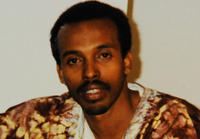
Minneapolis resident Mahamud Said Omar is facing five separate terrorism-related charges after being accused of helping to recruit and finance U.S. militants for a Somali terrorist group; since 2007 the group, known as al-Shabab, has recruited more than twenty young men to leave Minnesota for Somalia to take up arms with the terrorist group; among the recruits was Shirwa Ahmed who, in November 2008, became the first known U.S. citizen to carry out a suicide bombing
-
-
Future of interrogation methods of terrorists may depend on election
On the campaign trail, Barack Obama and Mitt Romney have not said much about their approach to interrogating terrorists; but as the manner in which U.S. government agencies approach such interrogations, and the practices agents employ, may well depend on the outcome of next month’s election
-
-
Former L-3 employee guilty of selling weapon secrets to China

A federal court judge in Newark, New Jersey convicted Sixing Liu on six counts of violating the Arms Export Control Act as well as possessing stolen trade secrets, transporting stolen property, and lying to federal agents; Liu is was convicted of stealing thousands of electronic files detailing performance and design of guidance systems for missiles, rockets, target locators, and unmanned aerial vehicles in 2010
-
-
Experts trying to determine cause of a giant Louisiana sinkhole
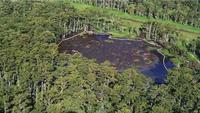
The earth near Bayou Corne, Louisiana opened on 2 August: a 300-foot-wide sinkhole, with depth varying between 50 and 300 feet, suddenly opened up in an area, and the authorities have been trying to determine whether the sinkhole was caused by the collapse of an abandoned brine mining cavern along the margin of the Napoleonville Salt Dome or by something else
-
-
How vulnerable is the U.S. to agro-terror attack?

Since the 9/11 terrorist attacks, the United States has spent billions of dollars to make the country safer from another catastrophic event, but little of that money, and little attention, have been directed toward preventing, coping with, and recovering from a terrorist agro-attack; how vulnerable is the United States to an attack on its food system?
-
-
Technology soon to make drones deadlier, more autonomous
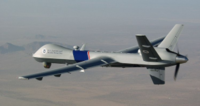
Unmanned aerial vehicles (UAVs) have become America’s main weapon in the campaign against terrorists — at the forefront are the Predator and the Reaper — and technological changes would soon make them even deadlier; in the next decade drones will be faster and carry more weapons than today’s versions; they will also have better sensors and more sophisticated computers, allowing them to plan and execute attacks with little human participation
-
-
PKK escalates terror campaign in Turkey
Seven people, including three soldiers, were killed Tuesday in an explosion that struck a military truck as it traveled along a road in Turkey’s southeastern Tunceli province; in the last fourteen months, more than 700 people have been killed in attacks by the PKK on Turkish military and civilians, and in Turkish retaliatory attacks against the Kurdish organization; during the most intense period of the PKK-Turkey conflict, between 1984 and 1999, more than 40,000 Turks were killed in attacks and counterattacks; the key to the surge in PKK terrorism in the last fourteen months: the autonomy the Syrian regime has tacitly given the Kurdish region in northeast Syria, an autonomy which has allowed the PKK the freedom to organize, arm, and launch attacks into Turkey
-
-
Debate over causes of levee failure during Katrina intensifies
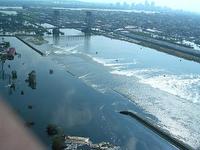
A court case in which residents of two sections of New Orleans are suing a construction group has put millions of dollars at stake; residents of the Lower 9th Ward and St. Bernard Parish residents claim that Washington Group International (WGI), an Amy Corps of Engineers contractor, removed several buildings and pilings from land along the Industrial Canal as part of a construction plan to expand the canal’s shipping lock, then failed adequately to plug the holes left behind; the holes allowed rainwater from Hurricane Katrina to seep underneath the 14-foot wall, essentially lifting the wall and allowing the areas to be flooded
-
-
GAO: Easily obtained counterfeit IDs present real risks

The Government Accountability Office (GAO) released a report in which the agency demonstrates that counterfeit documents can still be used easily to obtain valid driver’s licenses and state-issued identification cards under fictitious identities; GAO recommended that DHS exert more assertive leadership in an effort to correct the problem
-
-
Repair bill for Miami-Dade water and sewage system: $12 billion
Repairing, replacing, and rebuilding 13,000 miles of old water and sewage pipes and the treatment plants they connect to could cost Miami-Dade County, Florida more than $12 billion dollars over the next fifteen years; this is a staggering amount – made even more so in light of the fact that this is considerably more than the original estimate of $1 billion
-
-
Georgia’s Plant Vogtle reviving hopes for nuclear power in U.S.
Plant Vogtle, located in Burke County, Georgia, is one of the most watched construction projects in the world; it is currently going through a $14 billion dollar expansion, which includes the first new commercial reactors built in the United States in decades
-
-
Desalination losing ground as a solution to California’s chronic water shortage
According to the July 2011 census, more than thirty-seven million people live in California, increasing the pressure on the state’s water sources; desalinating sea water as a solution to the scarcity of fresh water is not a new technology — it has been around for more than four decades — but it has more recently been considered as a way to address California’s chronic, and growing, water shortage; a closer examination of the technology and its cost has cooled the initial enthusiasm for it
-
-
Obama will use tough language on Iran in today’s UN speech, but no “red lines”
President Barack Obama, in his speech later today to the general assembly of the UN, will use harsher language to denounce Iran for its nuclear weapons program; Obama will also repeat the U.S. commitment to prevent Iran from acquiring nuclear weapons, but will stop short of announcing clear red lines which, if Iran crossed them, would trigger a U.S. military attack on Iran’s nuclear facilities
-
-
West Africa expert still hopes Mali would not devolve into “Africanistan”
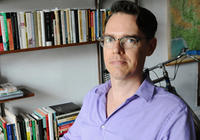
Earlier this summer, Islamic militants in the West African nation of Mali destroyed the tombs of Sufi Muslim saints in the fabled city of Timbuktu; the act, widely compared to the Taliban’s destruction of colossal stone Buddhas in Afghanistan, raised concerns about the fate of other cultural treasures in what was once a vibrant center of Islamic scholarship
-
More headlines
The long view
Factories First: Winning the Drone War Before It Starts
Wars are won by factories before they are won on the battlefield,Martin C. Feldmann writes, noting that the United States lacks the manufacturing depth for the coming drone age. Rectifying this situation “will take far more than procurement tweaks,” Feldmann writes. “It demands a national-level, wartime-scale industrial mobilization.”
No Nation Is an Island: The Dangers of Modern U.S. Isolationism
The resurgence of isolationist sentiment in American politics is understandable but misguided. While the desire to refocus on domestic renewal is justified, retreating from the world will not bring the security, prosperity, or sovereignty that its proponents promise. On the contrary, it invites instability, diminishes U.S. influence, and erodes the democratic order the U.S. helped forge.
Fragmented by Design: USAID’s Dismantling and the Future of American Foreign Aid
The Trump administration launched an aggressive restructuring of U.S. foreign aid, effectively dismantling the United States Agency for International Development (USAID). The humanitarian and geopolitical fallout of the demise of USAID includes shuttered clinics, destroyed food aid, and China’s growing influence in the global south. This new era of American soft power will determine how, and whether, the U.S. continues to lead in global development.
Water Wars: A Historic Agreement Between Mexico and US Is Ramping Up Border Tension
By Natasha Lindstaedt
As climate change drives rising temperatures and changes in rainfall, Mexico and the US are in the middle of a conflict over water, putting an additional strain on their relationship. Partly due to constant droughts, Mexico has struggled to maintain its water deliveries for much of the last 25 years, deliveries to which it is obligated by a 1944 water-sharing agreement between the two countries.
How Disastrous Was the Trump-Putin Meeting?
In Alaska, Trump got played by Putin. Therefore, Steven Pifer writes, the European leaders and Zelensky have to “diplomatically offer suggestions to walk Trump back from a position that he does not appear to understand would be bad for Ukraine, bad for Europe, and bad for American interests. And they have to do so without setting off an explosion that could disrupt U.S.-Ukrainian and U.S.-European relations—all to the delight of Putin and the Kremlin.”
How Male Grievance Fuels Radicalization and Extremist Violence
By Haily Tran
Social extremism is evolving in reach and form. While traditional racial supremacy ideologies remain, contemporary movements are now often fueled by something more personal and emotionally resonant: male grievance.
